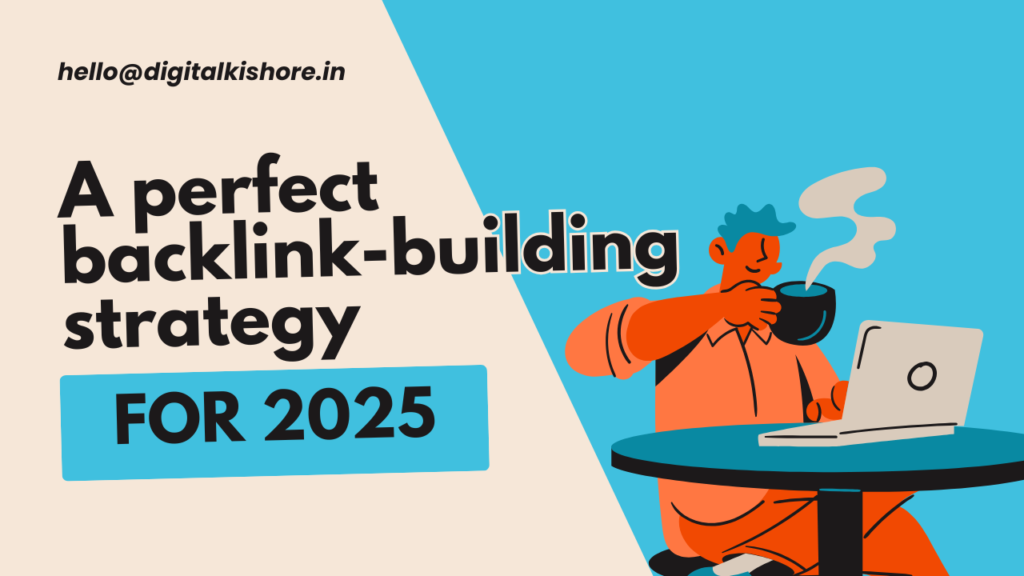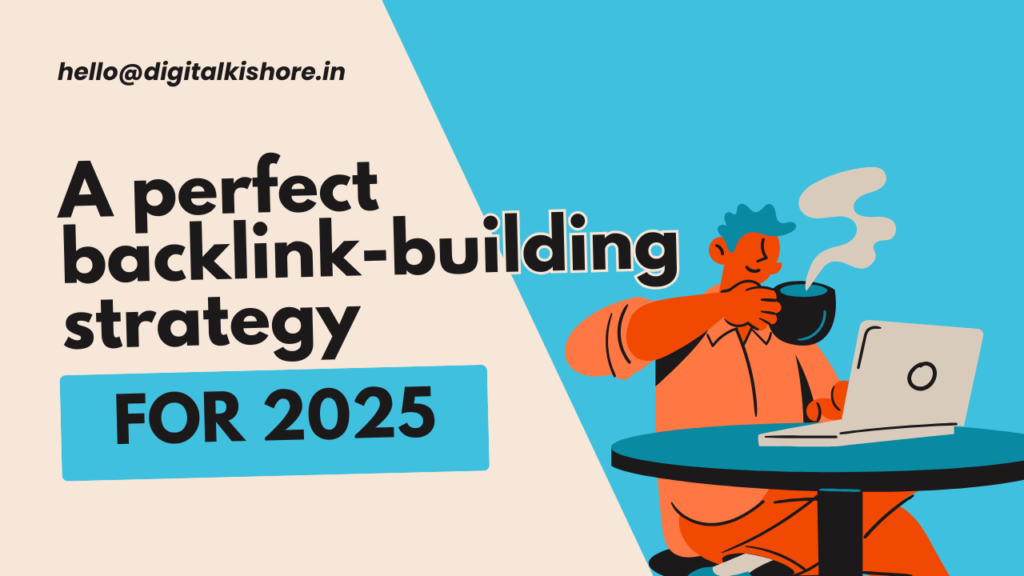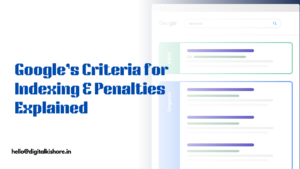Backlink building has always been a cornerstone of effective SEO. In 2025, as search engine algorithms become more sophisticated, backlink strategies need to evolve to stay effective. Gone are the days of spammy link directories or mindless link exchanges—today’s search engines value quality over quantity. In this blog, we’ll guide you through a perfect backlink-building strategy for 2025 that aligns with modern SEO practices and helps your site climb the SERPs.
Why Are Backlinks Important in 2025?
Backlinks act as “votes of confidence” for your website. When high-quality websites link to your content, search engines perceive your site as credible and valuable. This can lead to:
- Higher search engine rankings
- Increased organic traffic
- Enhanced domain authority
- Stronger online visibility
However, 2025’s search engines are smarter than ever, and they focus on relevance, context, and user intent when evaluating backlinks. It’s not just about getting links—it’s about getting the right links.

Also Read: 11 Essential Off-Page SEO Submission Types: Boost Your Website’s Authority and Traffic
Key Elements of a Successful Backlink Strategy in 2025
1. Prioritize Quality Over Quantity
Instead of chasing hundreds of low-quality links, aim for a handful of authoritative and relevant backlinks.
- Authoritative sites: Focus on websites with high domain authority and strong industry presence.
- Relevance: Ensure the linking site’s content is related to your niche.
- Natural links: Avoid paid or overly optimized anchor texts; opt for natural mentions instead.
💡 Pro Tip: Use tools like Ahrefs or Moz to evaluate a site’s domain authority before targeting it for a backlink.
2. Create Link-Worthy Content
Exceptional content naturally attracts backlinks. Focus on producing:
- In-depth guides: Long-form, detailed content that answers user queries comprehensively.
- Infographics: Visual data is highly shareable and often linked to.
- Original research: Publish studies, surveys, or case studies that other sites will reference.
- Interactive tools: Calculators, quizzes, and templates generate strong engagement and backlinks.
💡 Pro Tip: Update existing content regularly to keep it relevant and attractive for links.

Also Read :Revolutionize Your SEO Strategy with ChatGPT: Essential Prompts for Experts
3. Build Relationships
Networking is critical for backlink success. Start building genuine relationships with:
- Industry influencers: Connect with bloggers, YouTubers, and content creators.
- Webmasters: Reach out to site owners who publish content in your niche.
- Journalists: Use platforms like HARO (Help a Reporter Out) to provide quotes and insights that earn backlinks.
💡 Pro Tip: Avoid cold outreach without personalization. Tailor your pitches to show you’ve researched their site.
4. Leverage Guest Blogging
Guest blogging is alive and well in 2025 but requires a strategic approach:
- Target high-authority sites: Focus on blogs with strong traffic and engagement metrics.
- Create valuable content: Your guest posts should educate and entertain their audience.
- Include contextual backlinks: Place links naturally within the content, avoiding over-optimization.
💡 Pro Tip: Build a portfolio of guest posts to showcase your expertise and attract more opportunities.

Also Read : Content Pruning for SEO: A Complete Guide 2025
5. Repurpose and Reclaim Broken Links
Take advantage of existing opportunities:
- Broken link building: Find broken links on high-authority sites and offer your content as a replacement.
- Link reclamation: Monitor mentions of your brand or content without backlinks, and request proper attribution.
💡 Pro Tip: Use tools like Check My Links or Ahrefs to identify broken links on your target sites.
6. Explore Niche Forums and Communities
Participate actively in online communities related to your niche:
- Answer questions on Reddit or Quora, linking back to your site when appropriate.
- Join niche-specific forums where you can share expertise and link to relevant content.
💡 Pro Tip: Avoid spammy behavior. Contribute genuinely to build trust and credibility.
7. Embrace Local SEO for Backlinks
For businesses targeting specific regions, local backlinks are crucial:
- Collaborate with local blogs and news outlets.
- Partner with regional directories and business listings.
- Sponsor local events and charities for mentions and links.
💡 Pro Tip: Use tools like BrightLocal to find local link-building opportunities.

Also Read : Struggling with Local SEO? On-Page Optimization Might Be the Answer
8. Monitor and Analyze Backlink Performance
Backlink building doesn’t end once the links are live. Regularly monitor your backlinks to:
- Check for broken or removed links.
- Ensure the linking sites maintain their quality.
- Analyze which links drive the most traffic and conversions.
💡 Pro Tip: Use tools like SEMrush or Google Search Console for backlink analysis.
Backlink Building Mistakes to Avoid in 2025
- Buying links: Paid links can result in penalties from Google.
- Over-optimized anchor texts: Too many keyword-heavy anchors look unnatural.
- Ignoring link quality: A single bad backlink can harm your SEO.
- Spammy outreach: Mass emails without personalization are ineffective.
Also Read: The AI Revolution in Marketing: Transforming Strategies and Outcomes
Wrapping It Up
Building a strong backlink profile in 2025 requires a thoughtful and strategic approach. By prioritizing quality, fostering relationships, and creating outstanding content, you’ll establish a backlink strategy that drives real results.
Remember, backlinks aren’t just about improving your rankings—they’re about building your brand’s credibility and authority online.
Ready to take your backlink strategy to the next level? Let Digital Kishore guide you! From SEO audits to personalized link-building plans, we’re here to help you dominate in 2025. Reach out today to start your journey to higher rankings and better traffic! 🚀
1. What are backlinks, and why are they important in SEO?
Backlinks are hyperlinks from one website to another. They act as “votes of confidence” for search engines, signaling that your content is credible and valuable. High-quality backlinks improve search engine rankings, increase organic traffic, and boost your domain authority.
2. What’s the difference between high-quality and low-quality backlinks?
High-quality backlinks come from authoritative, relevant, and trustworthy websites in your niche.
Low-quality backlinks come from spammy, unrelated, or poorly-rated websites, which can harm your SEO performance.
3. How can I attract natural backlinks to my website?
Create exceptional, shareable content like in-depth guides, infographics, and original research.
Promote your content through social media and email outreach.
Engage with industry influencers and communities to gain visibility.
4. Is guest blogging still effective for building backlinks in 2025?
Yes, guest blogging remains a powerful strategy when done right. Focus on high-authority websites, create value-driven content, and include natural, contextual backlinks within the content.
5. What tools can I use to monitor my backlinks?
Some popular tools include:
Ahrefs
SEMrush
Google Search Console
Moz Link Explorer
These tools help you track backlinks, evaluate their quality, and identify opportunities for improvement.
6. How do I avoid Google penalties while building backlinks?
Avoid buying links or using automated tools for link building.
Ensure backlinks are from relevant and authoritative sources.
Use natural anchor texts instead of overly optimized keywords.
7. What is broken link building, and how can I use it?
Broken link building involves identifying broken links on other websites and offering your content as a replacement. Use tools like Check My Links or Ahrefs to find broken links and reach out to site owners with a polite suggestion.
8. Are directory submissions still relevant for backlinks?
While general directories have lost their value, niche-specific and high-authority directories can still provide meaningful backlinks. Focus on directories that are relevant to your industry or location.
9. How can I reclaim lost backlinks?
Monitor mentions of your brand or content using tools like Google Alerts or Mention. If a site mentions you without a backlink, kindly request attribution. Also, check for removed or broken backlinks and contact the site owners to reinstate them.
10. Can backlinks from social media help my SEO?
Backlinks from social media are typically “no-follow,” meaning they don’t directly impact your SEO rankings. However, they can drive traffic, improve visibility, and lead to natural backlinks from other sources.
11. How often should I evaluate my backlink profile?
Regularly monitor your backlinks, ideally once a month. Use tools like Google Search Console or SEMrush to identify any harmful links or opportunities for improvement.
12. What are some mistakes to avoid in backlink building?
Buying links from low-quality sites.
Overusing keyword-heavy anchor texts.
Focusing on quantity instead of quality.
Neglecting to monitor your backlink profile for harmful links.
13. How long does it take for backlinks to show SEO results?
Backlinks take time to impact your rankings. It could take anywhere from a few weeks to several months, depending on the quality of the backlinks and your website’s overall SEO health.
14. Is local backlinking important for small businesses?
Yes, local backlinks are essential for businesses targeting a specific region. Collaborate with local blogs, directories, and news outlets to improve local SEO and drive targeted traffic.
15. Can I build backlinks without creating new content?
Yes, you can:
Update and promote your existing content.
Use broken link building and link reclamation techniques.
Engage in partnerships or collaborations with other websites.
If you’re ready to optimize your backlink strategy and improve your SEO in 2025, Digital Kishore can help you develop a winning plan tailored to your business needs! 🚀
















